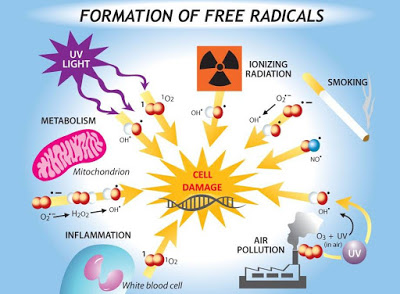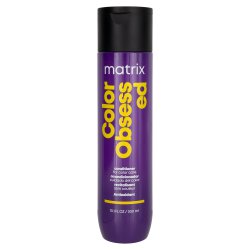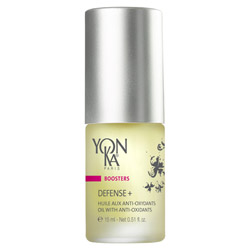Ingreditent: Antioxidants
It is a result of free radical activity in the body. Free radicals are molecules that are produced by environmental exposures like tobacco smoke and radiation, including radiation from the sun and other sources of UV rays, including tanning beds. Free radicals are also produced when your body breaks down food.

Antioxidants are naturally occurring substances that may provide protection against the effects of damaging free radicals on the cells in your body, including your skin. We can increase our supply by ingesting antioxidants, and more directly, applying them to our skin. Antioxidants are the foundation of skin rejuvenation.
1. Vitamin E
Vitamin E (tocopherol) is an antioxidant that is present in the skin and found in various foods, such as vegetables, seeds and meat. It helps the skin look younger by boosting collagen production and in turn reducing the appearance of fine lines, wrinkles and age spots.
Unlike other vitamins, skin derives more of its benefits from vitamin E better through topical treatments than through oral supplements. Vitamin E is available in two forms: alpha-tocopherol (alcohol-based) and alpha-tocopherol acetate. The latter does not penetrate the skin as easily, so make sure you're reading the labels closely to get maximum benefit of the vitamin E.
2. Lycopene
Lycopene, a powerful antioxidant, is a carotenoid found in red fruits and vegetables. It is, in fact, responsible for their red color. In addition to being a healthy choice for your diet, it's a great choice for improving skin texture because it promotes collagen production and reduces the DNA damage that leads to wrinkles. 3. Green Tea Green Tea has become one of the new age food heroes - a helpful ally in preventing everything from heart disease and cancer to skin aging and weight gain. The full range of heath benefits may take decades to define, but research on its impact on human skin is reasonably well developed. The secret ingredients are chemicals called catechins, which are antioxidants that can clear cell damage on the skin and repair wrinkles, blemishes or other impurities. When applied to the skin, green tea can reduce sun damage by reducing inflammation and tackling free radicals. (It doesn't block UV rays.) When choosing a tea, its helpful to know that green tea has over five times the amount of catechins as black tea.
4. Coffee Berry
As an ingredient in anti-aging formulas, coffee berry prevents collagen damage, reduces wrinkles and protects the skin against damage. It also has anti-inflammatory properties, which can lessen the appearance of fine lines and wrinkles, leading to more youthful looking skin.
5. Ferulic Acid
Ferulic acid is an antioxidant found in the cell walls of plants such as rice and oats and the seeds of apples and oranges, where it plays a key role in the plants' protection and self-preservation. When applied topically, ferulic acid acts like other antioxidants in that it helps to slow the aging process by reducing the effects of damaging free radicals on the skin. It is also thought to protect against sun damage, as well as assisting in skin's regeneration functions to tackle skin that has already been over-exposed. In addition, it has the benefit of working well alongside other antioxidants, enhancing the stability and the efficacy of vitamins C and E.
6. Phloretin
It is a flavonoid substance derived from apples and the bark of apple trees. Research has shown that it has antioxidant ability, can improve the look of an uneven skin tone, and also serves as a penetration enhancer, which means it can, when properly formulated, help other beneficial ingredients go beyond the superficial layers of skin
7. Grape Seed
Grape seed is extracted from vitis vinifera and is rich in proanthocyanidins, which belong to the flavonoid family. Proanthocyanidins are potent antioxidants with strong free radical scavenging activities. Grape seed extract has been shown to be an even stronger scavenger of free radicals than vitamins C and E.
8. Niacinamide
Niacinamide (vitamin B3) is a powerful antioxidant that has shown to exhibit anti-inflammatory and depigmenting properties. It has also shown to improve the texture and tone of the skin, as well as reduce fine lines, wrinkles and hyperpigmentation.
9. Vitamin C
Vitamin C (L-ascorbic acid) is an essential nutrient that can only come from the healthy fruits and vegetables that contain it. Vitamin C is usually touted for its cold-fighting power, but it's also under study for its impact on preventing and reversing aging skin. It works in two ways: as an antioxidant, as well as a booster of collagen formation - both of which are important to preserving and maintaining skin's youthful appearance.
So�which work best and how do you select the right product for yourself without breaking the bank? So many studies are currently being done, both by the medical community and the cosmetic industry. The most recent studies have found several to be irrefutably effective, including vitamins C and E, ferulic acid, phloretin, and green and red tea: Vivian Bucay, Clinical Assistant Professor of the UT Health Science Center in San Antonio, "When we do the Canfield VISIA Complexion Analysis [which detects sun damage under skin's surface], patients who've been applying these antioxidants along with sunscreen show less DNA damage after three months than those who use sunscreen alone."


 write a review
write a review


 write a review
write a review
